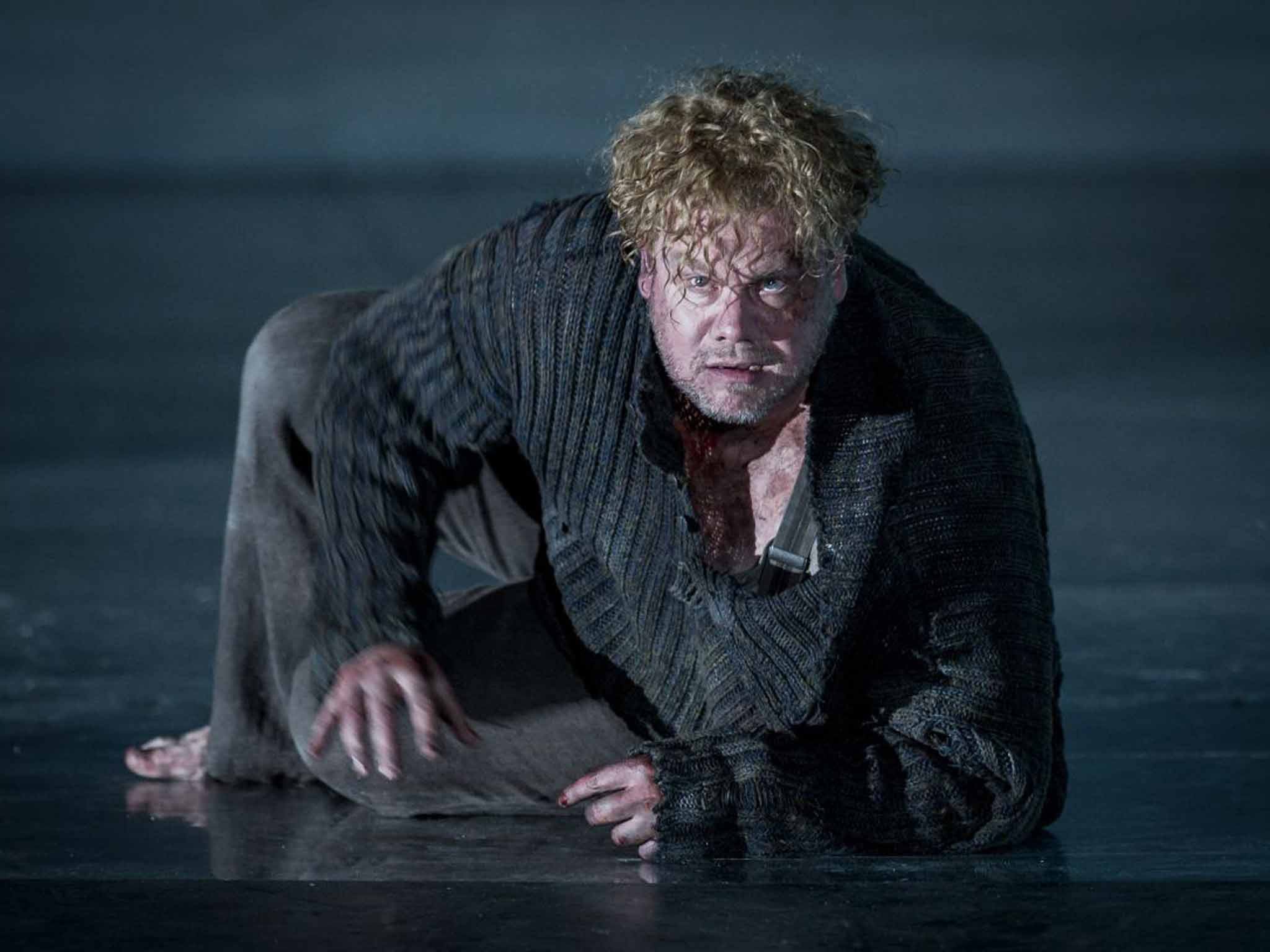Stuart Skelton: rising to the challenge of Otello
As the tenor Stuart Skelton braces himself to play the Moor, he tells Jessica Duchen why he refuses to black up for the part

The rarest creature on the operatic stage is the true Heldentenor, or "heroic tenor": a singer who has the stamina for Wagner's enormous operas, who can nail the high notes and whose sound can convey beauty, drama and seductive virility as well as sheer volume. Stuart Skelton, from Australia, is London's current Heldentenor of choice – and he excels at the lot.
His "signature" role is Benjamin Britten's Peter Grimes – a complex character whom he makes not only sympathetic, but heartbreaking. He starred in David Alden's much-lauded production, first seen at the Coliseum in 2009; and his appearances during last year's Britten centenary celebrations renewed his renown.
He is about to tackle another huge challenge: the title role of Verdi's Otello, which opens the new season at English National Opera on 13 September. The production reunites him with the Peter Grimes team: the director David Alden and the conductor Edward Gardiner, who is starting his last year as music director of ENO.
It is a dream role for any tenor – though Skelton has already dealt with one of its thorny issues and says he will "absolutely not" be blacking up to portray the jealousy-ravaged Moor. "We discussed it at the outset and were all of one mind," he says.
"It's an interesting prospect to try to inhabit this horribly conflicted guy, along with the glory that is this fabulous score," he says. "Especially so with this team – it's wonderful to work with people you trust implicitly. The first show I did here was David's production of Jenufa in 2006, which introduced me to London. And there's not much I wouldn't do for Ed Gardiner. Every opportunity I get to work with him I'm going to take."
Skelton's down-to-earth persona lacks any jot of pretension; he lives and breathes music in the most relaxed and confident way. He has been singing since childhood when, aged nine, he became a chorister at St Andrew's Cathedral, Sydney; after university he won Australia's biggest scholarship to study abroad and headed for the US. A young artists' programme at San Francisco Opera was his launchpad.
"I didn't have any plans to be a professional musician," he says, "but not to be one seemed a stupid idea. It was the one thing I was genuinely passionate about; and the one thing that I was genuinely good at. My parents always told me and my brothers to do whatever we wanted, as long as we do our best at it and love what we do. My father's an engineer and he doesn't 'get' singing at all," he adds. "I had to explain it to him in terms of supply and demand."
Skelton spends downtime in Florida, where he and his girlfriend Sarah Noble, a music journalist for the Australian magazine Limelight, unwind between operatic stints. "It's wonderful Sarah travels with me, so she's not missing out while I see all these great places," he says.
London, he adds, feels like home. "I've worked for ENO more than for anyone else," he says. "In 2006 in Jenufa, when nobody knew who I was, they took a risk on me and it was an amazing experience. And the 2009 Peter Grimes gave me a relationship with a London audience that I'm still slightly awed by. I will always be available to do stuff for ENO because I think they do really compelling theatre."
The company, though, has been criticised for supposedly taking too many risks in an enormous theatre that is hard to fill. A few months ago its funding from Arts Council England was slashed by 29 per cent. "If you take risks then some of the time it doesn't pay off," Skelton says, "but when it does, it does so in spades. I don't think safe stuff is in this company's DNA. It's in its core to do theatrically compelling, sometimes risky work, in an environment where everyone is encouraged to live on the edge a little.
"That's important for performers. You've got to stand on the edge to see what's at stake. You've got to take the audience to the edge of the precipice with you and get them to look over, because that's when you've given them a truly theatrical experience."
"I'm confident that ENO will navigate through the difficulties", he says. However, he adds: "Given that this theatre is so much bigger than our friendly neighbours [the Royal Opera House], how come our friendly neighbours get so much more?"
Skelton has not yet sung for those "friendly neighbours", but he hints that this will soon change. More excitements in the pipeline include his first shot at Wagner's Tristan und Isolde in a concert performance with the Sydney Symphony Orchestra in June 2015; Saint-Saëns's Samson et Dalila in Orviedo; and Siegmund in Wagner's Die Walküre in Munich.
His one regret about being in such demand is his "72-hour rule": he does not touch alcohol for three days before any work. "My colleagues will say, 'We're off to the pub, but you can't come too because of your 72-hour rule,'" he growls. "Thanks a lot, chaps…"
ENO: 'Otello', London Coliseum, WC2N 4ES (020 7845 9300) 13 September to 17 October
Join our commenting forum
Join thought-provoking conversations, follow other Independent readers and see their replies
Comments
Bookmark popover
Removed from bookmarks